Unknown to princess Njinga, her ascension to the throne though littered with horrific acts would inspire on-screen retellings (the 2013 Angolan historical drama Njinga: Queen Of Angola and a Starz series, Queen Nzinga, in development) and importantly, her years and fame as the first female ruler (1624-1663) —which forms the base of African Queens: Njinga will cross the border of Ndongo (present-day Angola) to the world. It’s the 16th century —the century doubles as the starting point of the docuseries and it is notable for the encroachment of Africa by ships. Princess Njinga is on the verge of becoming the female king of Ndongo. Her father (played by Thabo Bopape), like other African rulers, is worried about this fast-paced loss of his territory to Europeans.
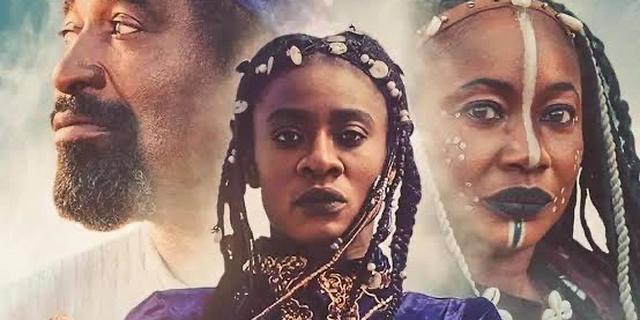 ‘Amina’ (2021) Review: Izu Ojukwu’s Flailing Historical Epic
‘Amina’ (2021) Review: Izu Ojukwu’s Flailing Historical Epic
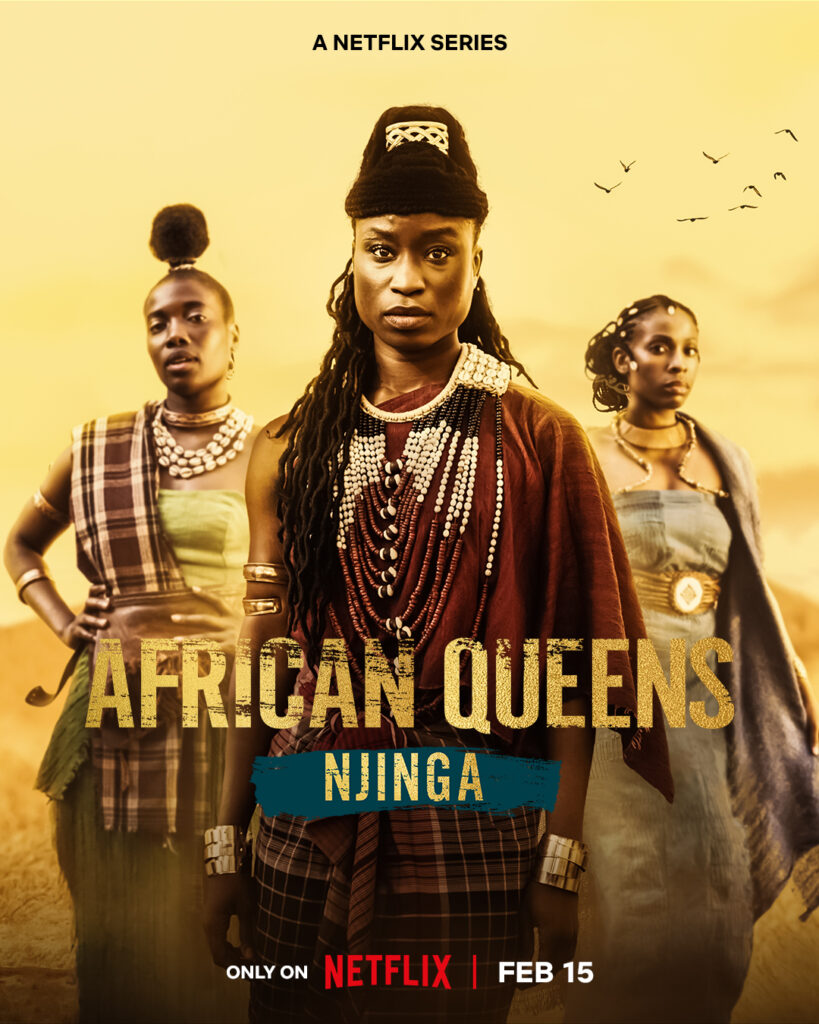
African Queens, the Netflix docuseries, begins with a series of events that serves as a clue of the kind of life Njinga will lead. This thread of events —the military training, the subtle but effective diplomatic decisions, and her affinity for brilliance — are all independently highlighted as the docuseries narrated by Jada Pinkett Sreenactnacts fragments from Njinga’s life. This series is a blend of narrative storytelling and documentary featuring an ensemble of experts and academics —notably, Queen Diambi Kabatusuila, a real-life woman king of the Bakwa Luntu people, in the present-day Democratic Republic of Congo. By spotlighting the historical significance of Queen Njinga, her sisters, and her female priest and spiritual counsel, this four-part historical series attempts to fill the void of African women’s stories created by male dominance.
At some point, not quite long, in cinema history, Africans were a rarity in period drama or documentaries. The absence of Black bodies on screen could make one conclude that Black bodies are taboo. And when Africans were occasionally featured, they were mostly slaves or savages with a culture that needed “salvation.” The sight of Africans as scientists, soldiers, philosophers, artists, and adventurers was omitted from our screens. In the Jade Pinkett Smith-produced docudrama series, though the Africans are still, from the Non-blacks gaze, seen as slaves, barbaric, and products to banter over, it’s the story of Queen Njinga (played with admiration by Adesuwa Oni) that takes the spotlight.
By placing Queen Njinga in the fore, the series addresses two important parts of African history. Like recent blockbusters, The Woman King and Black Panther: Wakanda Forever, this series presents Africans as cultured. Similarly to The Woman King, we see the historical import of women’s role, in this case, Njinga’s position as a female ruler in a masculine-controlled society. Bringing the story of Njinga to the fore, the series furthers the conversation about the societal-sanctioned ostracization of women in African society. As the narrator states, for centuries, “Njinga’s prowess diminished, her story buried.” Women in African society mostly receded to the position of epilogue; barricaded to footnote in history books. But, the existence of this series and that of the 2021 Izu-Ojukwu-directed Amina (inspired by Queen Amina of Zazzau) are subtle but effective means of challenging the masculine narrative that women’s only birthright is being daughters, wives, and mothers, only.
African history is on the fringes of dying out but more notably as the series shows, the history of African women, in masculine society, faces a doubled risk of neglect. It’s noticeable all through the 4-part episode series, the toxic relationship that exists between royal siblings: dueling, politics and competition. This contest between siblings from the royal family acts as the catalyst for violent and deadly acts. In African Queens, Kiluanje (Siya Sikawuti), the eldest son is the least favorite; Mbande (Philips Nortey) the second son, as seen from his opinion at a council meeting, has limited potential for leadership; and the most favourite child, Njinga, with innate leadership potential, has limited claim to the throne: she is a woman. To rejig the patriarchal order of succession to the throne, she has to constantly demonstrate her ability to rule the throne, not only to her domestic subjects but to the Europeans who are creeping upon her land.
The question always etched on my mind when I watch a dramatized documentary: Does the reliance of documentary on commentary —poised as an interview from experts— make a documentary filled with redundancy, seeing that the commentary is dramatized? What importance do the words of the experts and academics add to the dramatized reenacted story? Rather than inundate the docuseries with boredom, the interviews prove a point: Africans might have to rely on the West in telling our historical stories. The list of experts that range from anthropologists, historians, and professors and their Western affiliation subtly indicate this. Though the academics have a connection to Africa (Luke Pepera was born in Ghana and Dr. Edson Burton is black), a glance through their institutions reveals the dependence of Africa on the West. A question this raises is this: Where are the historians and professors from Angloan Universities? As patriotic Africans have discovered (and will continue to discover), a large collection of books on diverse African histories are archived in territories miles away from their original habitat —only fragments exist in Africa.
 ‘The Woman King’ Review: Authenticity Shelved for Themes and Aesthetics
‘The Woman King’ Review: Authenticity Shelved for Themes and Aesthetics
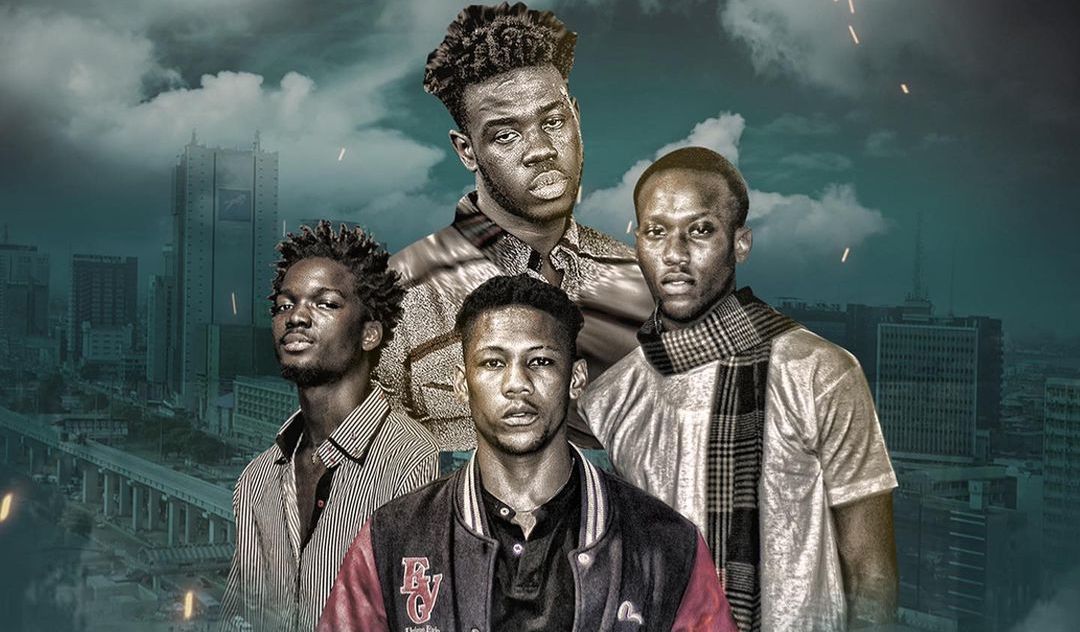 A ‘Dark October’ Essay: Linda Ikeji and the Mob
A ‘Dark October’ Essay: Linda Ikeji and the Mob
As captivating as the cinematography handled by Kabelo Thathe (RISE) is, it is filled with overused footage. The battle and slave settlement scenes when enacted on screen rely on the same pictures which are used over and over. Aside from the series’ dependency on using similar pictures, another confusing aspect of the series is the meager amount of actors on screen. This observation could pass as nitpicking, but for a series where the narrator constantly reminds viewers of the thousands of nomadic soldiers under the rulership of the deceitful Kasanje (Cory Hippolyte), this can be questioned. The artistic choice for the sparse cast and overused footage could have possibly been influenced by a limited timeframe for shooting and a low budget. These obvious lapses aside, the series contains two powerful images I will cherish for a while. In the two images, Queen Njinga is confidently sitting on the throne with four other women by her side. In a conventional masculine territory, religious and cultural conventions make those images a rarity.
Religious institutions have a historical role in African history. Western religion, with all its supposedly good intentions, has always been historically used to achieve a purpose: the use of doctrines to repress opposition from African people. Peres Owino, the writer of the series, is certain of this. In her words: “Battles aren’t won in the field until they are won in the mind” — a statement made by Queen Njinga. The colonialists understood that more than a gunshot, once Africans are inspired to question their belief system and culture, the warfare on the field becomes easier to win.
An overall interesting angle of African Queens: Njinga is how it reiterates the role played by the ruling class in the trading of African people. Though the series tries to humanize Queen Njinga, she isn’t different from other African nobles who gave “permission” to the colonialist to pillage their communities just to retain their privileged position as aristocrats. Queen Njinga, an epitome of resistance against the encroachment of Western tongues and doctrines, occasionally flirts with Western privileges when it soothes her. Her earlier mantra of “saving” her people was replaced with gaining recognition from the Catholic Pope as she aged.
In light of March being of greater importance for women internationally, films and series like Queen Amina, Woman King, and African Queens: Njinga will continually be remembered with great admiration. Though it’s a fast-paced conclusion to reach, as a large number of African women are still being societally bullied to adhere to masculine dictates, the existence of this series is a challenge to masculine narrative.
African Queens: Njinga is currently streaming on Netflix.

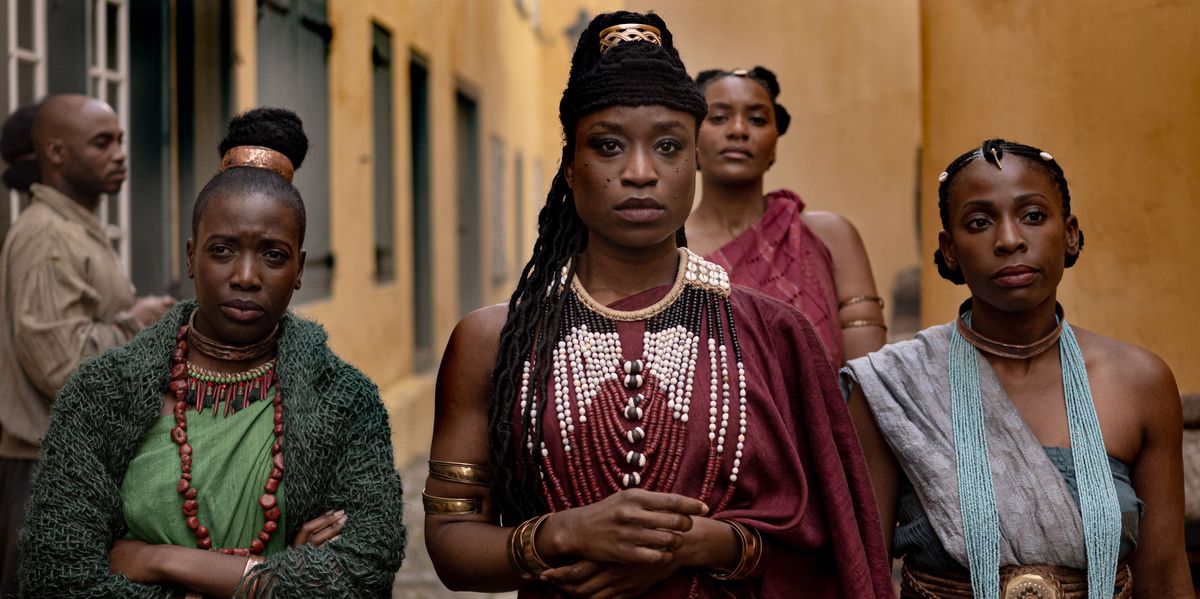
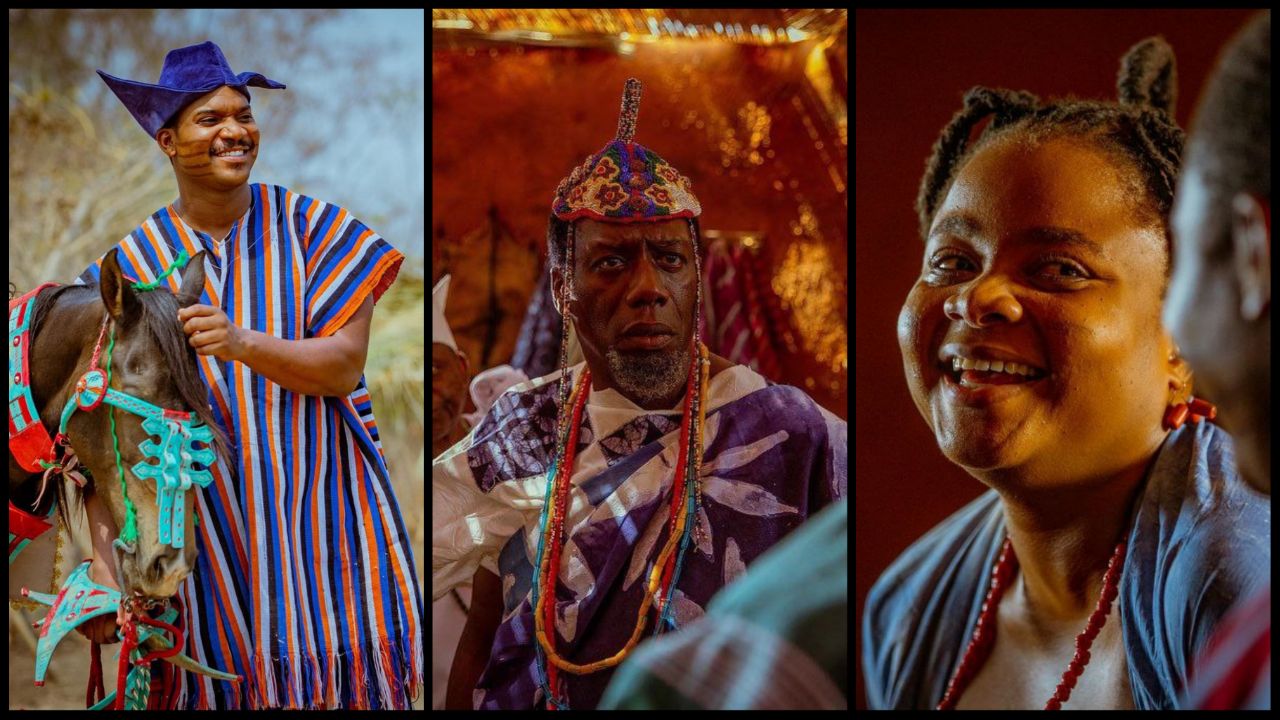
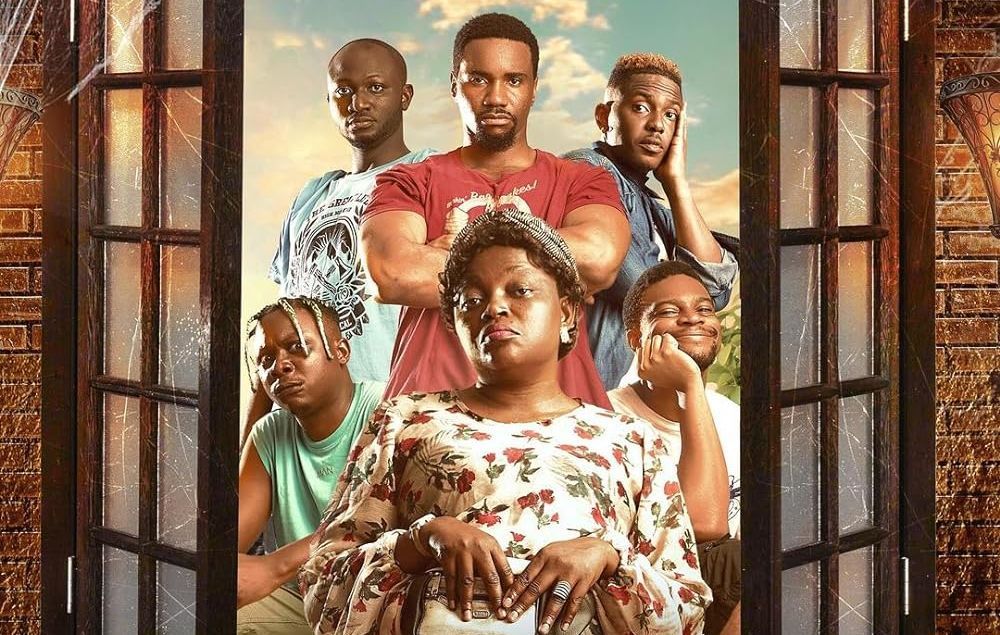

Mennn this one made me cry i loved it